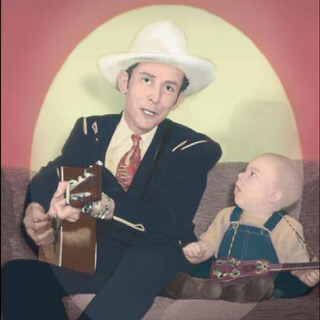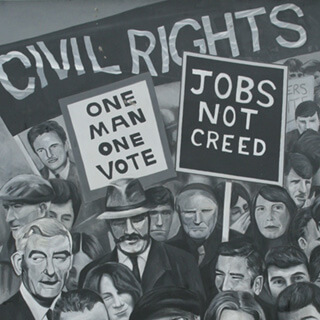Overview
In a talk at Emory University's Bill and Carol Fox Center for Humanistic Inquiry on January 30, 2013, Erich Nunn discusses how Jimmie Rodgers' music and musical style traveled to Africa and were appropriated by South Africans and Kenyans in the 1930s and 1940s.
Presentation
Part 2: Nunn discusses how Rodgers’ music was appropriated and recontextualized in South Africa and Kenya in the 1930’s and 1940’s
Part 3: Erich Nunn, Selected questions and answers
About the Author
Erich Nunn is Assistant Professor of English at Auburn University, where he teaches American Studies, with an emphasis on the literature and culture of the US South. He is spending the 2012–2013 academic year as a postdoctoral fellow at The Bill and Carol Fox Center for Humanistic Inquiry at Emory University. This presentation is drawn from his book project, Sounding the Color Line: Music and Race in the Southern Imagination.
Recommended Resources
Text
Appadurai, Arjun. Modernity at Large: Cultural Dimensions of Globalization. Minneapolis: University of Minnesota Press, 1996.
Ballantine, Christopher. Marabi Nights: Jazz, "Race" and Society in Early Apartheid South Africa. 2nd ed. Scottsville, South Africa: University of KwaZulu-Natal Press, 2012.
Belden, Henry M. and Arthur Palmer Hudson, eds. The Frank C. Brown Collection of North Carolina Folklore. Vol. 3, Folk Songs from North Carolina. Durham: University of North Carolina Press, 1952.
Boetie, Dugmore. Familiarity Is the Kingdom of the Lost. New York: Dutton, 1969.
Erlmann, Veit. African Stars: Studies in Black South African Performance. Chicago: University of Chicago Press, 1991.
Filene, Benjamin. Romancing the Folk: Public Memory and American Roots Music. Chapel Hill: University of North Carolina Press, 2000.
Huber, Patrick. Linthead Stomp: The Creation of Country Music in the Piedmont South. Chapel Hill: University of North Carolina Press, 2008.
Mazor, Barry. Meeting Jimmie Rodgers: How America's Original Roots Music Hero Changed the Pop Sounds of a Century. New York: Oxford University Press, 2009.
Miller, Karl Hagstrom. Segregating Sound: Inventing Folk and Pop Music in the Age of Jim Crow. Durham and London: Duke University Press, 2010.
Mphahlele, Ezekiel (Es’kia). Down Second Avenue. New York: Anchor, 1959.
Neal, Jocelyn R. The Songs of Jimmie Rodgers: A Legacy in Country Music. Bloomington: Indiana University Press, 2009.
Nunn, Erich. "American Balladry and the Anxiety of Ancestry." In Transatlantic Roots Music: Folk, Blues, and National Identities, edited by Jill Terry and Neil A. Wynn, 57–76. Jackson: University Press of Mississippi, 2012.
Porterfield, Nolan. Jimmie Rodgers: The Life and Times of America’s Blue Yodeler. 2nd ed. Urbana: University of Illinois Press, 2002.
Rodgers, Carrie Williamson. My Husband, Jimmie Rodgers. 2nd ed. Nashville: Vanderbilt University Press, 1995. First published in 1935 by Ernest Tubb Publications.
Audio
Rodgers, Jimmie. Jimmie Rodgers: The Singing Brakeman. Bear Family, 1992. CD.
Tracey, Hugh. Music of Africa Series No. 2: Kenya. London: London Recordings, 1952. LP.
———. Sounds of Africa: Kipsigis, Kenya. Roodepoort: International Library of African Music, 1950. LP.
Video
"Yodeling: Jimmie Rodgers and Howlin' Wolf," The Official Mississippi Blues Trail Video Archive, http://www.msbluestrail.org/films.


